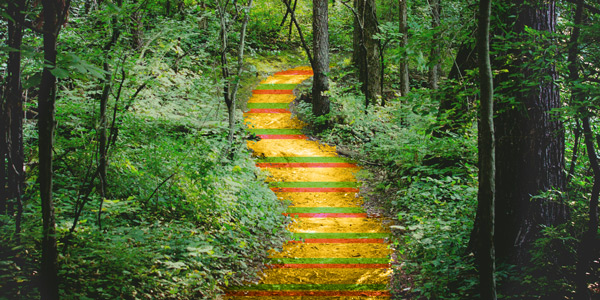by Rahshaana Green
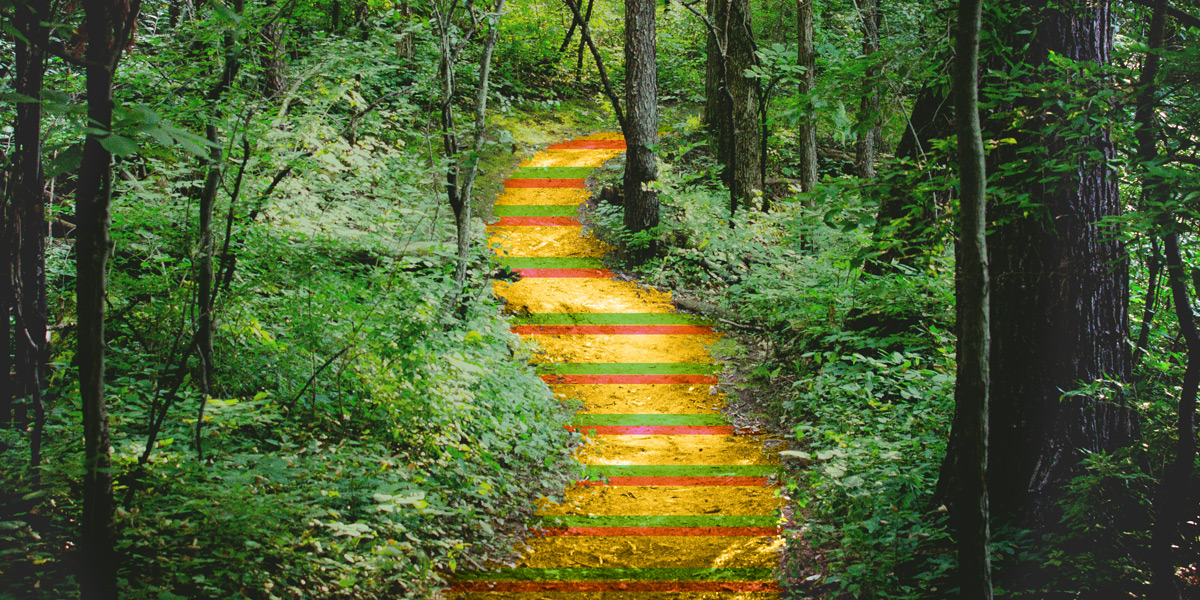
To be honest, I get a weird feeling in the pit of my stomach as February approaches every year. I start to brace myself in preparation for this year’s version of performative advertising and antics I’ll have to endure from nearly every business, organization, and community I will come into contact with. It always leaves me feeling cringey that we even need a month to highlight the historical accomplishments of a people who quite literally built the country we inhabit.
The past few years have felt like a rollercoaster as a Black person in America: from the centering of police violence towards Black bodies after George Floyd’s murder, to the centering/investing in diversity, equity, and inclusion across many industries, to the challenge of teaching the full story of our country’s (and others’) history, to the banning of books, to the ending of affirmative action in higher education—and the subsequent floundering of industries in trying to figure out what’s “in” to bring a pop culture lens of equity and inclusivity amongst their spaces. It leaves my head spinning and it feels unsettling. It makes me wonder what it’s going to take for Black people to safely access belonging and inclusion.
In a recent lecture I discussed the varied ways in which anti-Black violence presents itself (outside of police incidents which are more centered in recent discussion). The denial of equity in access to things like housing, education, wellness, jobs and loans/funding were at the top of the list. How do people feel safely connected to a society that creates and maintains hurdles for them to obtain necessities for thriving? It’s difficult to buy into the notion of a meritocracy that continues to hold onto systems and processes that provide access to those most privileged and gaslights others by blaming their failure to gain access on their need to work harder. The gaslighting, the microaggressions and extra work required to justify being included is now recognized as a contributor to the disproportionate negative healthcare outcomes in the Black community.
While an annual, month-long focus on Black History won’t solve these systemic issues, it does something else important: it reinforces a connection to lineage, history, pride and joy. Remembering and celebrating those that came before us and those who paved the way for our current experiences is fortifying. Learning the full history of how the systems we currently exist in came to be provides us with information that will help us find our way to more equitable ways of being in community. Making space to celebrate even amidst harm and inequity is a practice that keeps us connected to pride, joy and other positive emotions that denies systemic harm the ability to steal our peace. These things fortify us for navigating what will come while working towards change, but it also keeps us connected to the beauty of what we’re fighting for: a place where we can all exist and belong together.
May our contemplative practice bring us ever closer to realizing that vision.
by Joe Loizzo
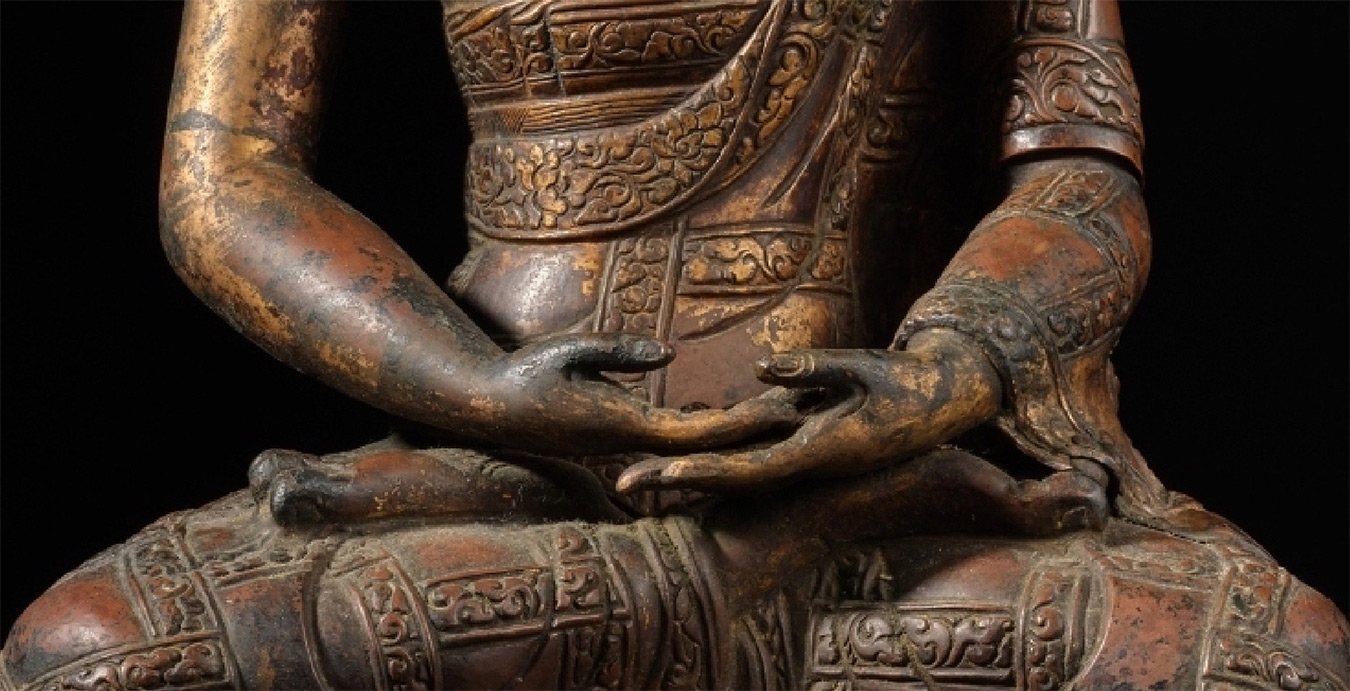
As the devastating tide of violence and loss, terror and rage in the Middle East keeps rising day by day, our hearts break for all the lives already lost, for all those in harm’s way, and for all those whose lives have been irrevocably scarred by the collective trauma unfolding there. The fact that this tragedy is taking place at the heart of what half of humanity calls the Holy Land, between communities who share a common spiritual legacy as well as a common ancestry, is a painful reminder of how far we still have to go as a global community to own our shared humanity deeply enough to fully reconcile our differences and flourish together as the family we are.
Adding to our heartbreak is the cutting awareness that the trauma unfolding before our eyes is fueling the very intergenerational cycle of traumatic reenactment that caused it, and so burdens future generations and puts them at greater risk. More salt in the wound is the harsh reality that this conflict is entangled with countless other conflicts around the world—from the wars in Ukraine, Azerbaijan, Yemen and Ethiopia to the internal conflicts in Syria, Afghanistan, Iran, Tibet, Xinjiang, Hong Kong, and the United States—all of which compound our collective suffering and add to the work of healing that lies ahead.
What can we do to avoid adding in any way to the legacy of collective trauma each of us has inherited in different ways, and to advance the inner and outer work of healing and reconciliation we and our world so desperately need today? Fortunately, alongside our shared legacy of trauma, we also share the legacy of humanity’s sage leaders of non-violence, deep healing and reconciliation. As a community that seeks refuge in Shakyamuni Buddha and his tradition, I believe we are called by our predicament today to contemplate his teaching that only love and compassion can break the cycle of violence and hatred. If he were here now, no doubt he would guide us to do everything we can to bring love and care to stop harm, alleviate pain and end suffering, wherever it lives, whatever shape it takes. And I expect he would also remind us to bring that same love and care to our own traumatic fear, rage, and bias, so that we can help break the cycle of reactivity and ongoing harm that would cause us and all those we touch, future pain and suffering.
In the midst of our heartbreak, now is the time to let our hearts break open, to renew our commitment, to look beneath our biases and reactive emotions, to own and deepen our shared humanity, so that we can be one small beat in the global movement it will take to bring healing, reconciliation, love and compassion to our our whole human family, and to all life on earth, once and for all.
Within the Nalanda Tradition, we practice embodying the spirit of resolve to transform ourselves and our world through prayer and invocation of mentors. The prayer for peace below ends with invoking the Archetypal Buddha of wise compassion, Avalokiteshvara, and reciting his world-making vow, Om Mani Padme Hum Hree, May My Mind Be the Jewel and the Flower of Compassion, and by invoking the Archetypal Buddha of Compassionate Wisdom, Manjushri, and reciting his world-making vow, Om Ara Pachana Dhee, May I and All Beings Quickly Awaken.
May all wars and conflicts quickly cease.
May all those wounded, held hostage, caught in the crossfire or traumatized by violence and loss be well cared for, released, kept safe, healed and reunited with loved ones.
May all the legacies of harm, bias and trauma dividing our human family be reconciled and healed soon.
May all beings know the joy that transcends grief and loss.
May all beings learn to live in equanimity, undisturbed by bias, fear, anger, and sorrow.
OM MANI PADME HUM HREE
OM ARA PACHANA DHEE
by Alexa Owen
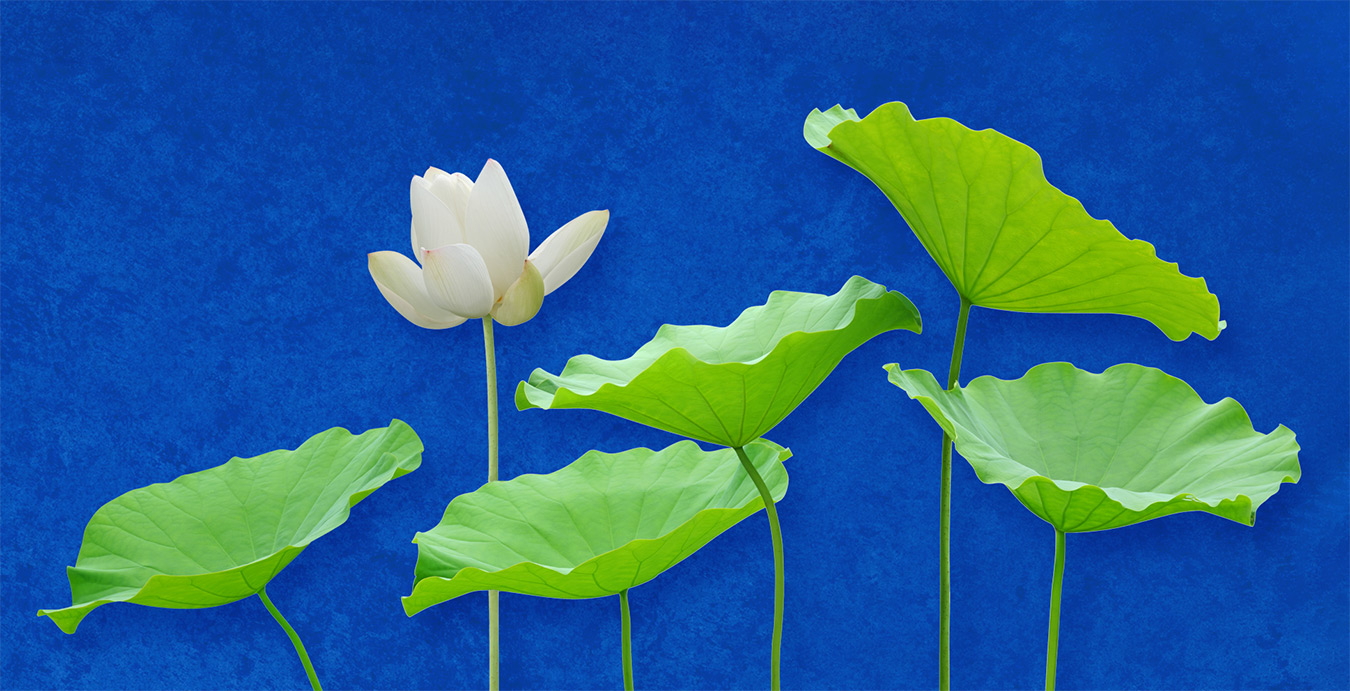
Contemplative science is widely recognized as a growing support for a number of populations: patients of chronic pain and illness, caregivers, mental health practitioners, and more. Colleges, universities, and graduate programs alike are also expanding to offer practices like meditation and yoga for students and staff. We can only hope that this growth continues—and not just for the sake of stress reduction, but for the opportunities such practices offer to embody compassionate, resilient, altruistic ways of being in the world.
by Nalanda Institute
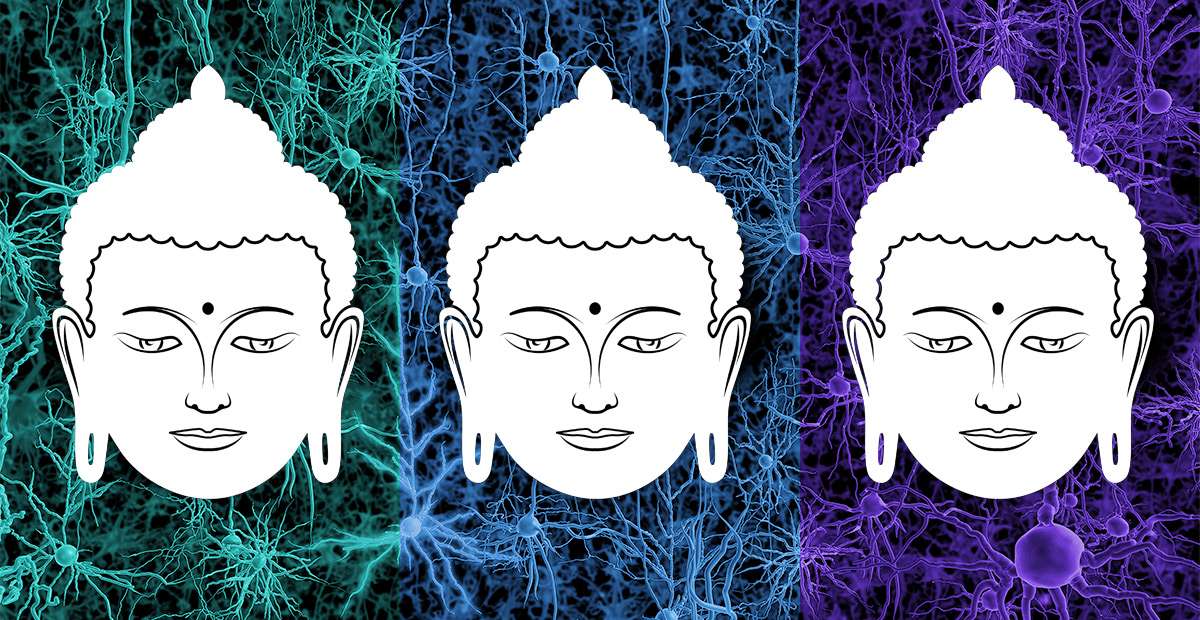
What is Contemplative Psychotherapy?
Contemplative Psychotherapy is a shared journey of deep learning and transformation that prepares therapists and non-therapists alike for an ongoing practice harnessing the healing wisdom and arts of both Buddhist and Western psychology. Contemplative Psychotherapy teaches us how to show up in the world from a more mindful, compassionate, and fully embodied place. It is an invitation to find your own path to deep personal and psychosocial change, rooted in the cultivation of self-awareness, healing dialogue, heart-opening compassion, and embodied intuition and flow.
by Nalanda Institute
Recently, the Compassion Year Live Learning cohort in Nalanda Institute’s Contemplative Psychotherapy Program (CPP), had the good fortune to receive an impactful teaching by the wise, warm, and fiercely compassionate Venerable Robina Courtin. Here is an excerpt of the class, which included a robust question and answer period (not shown here). In her generous talk, Venerable Robina shares how the Gradual Path in the Nalanda tradition embraces both wisdom and compassion, the two wings of a bird that allow our practice to take flight.
Please enjoy this powerful teaching.
.
by Nalanda Institute
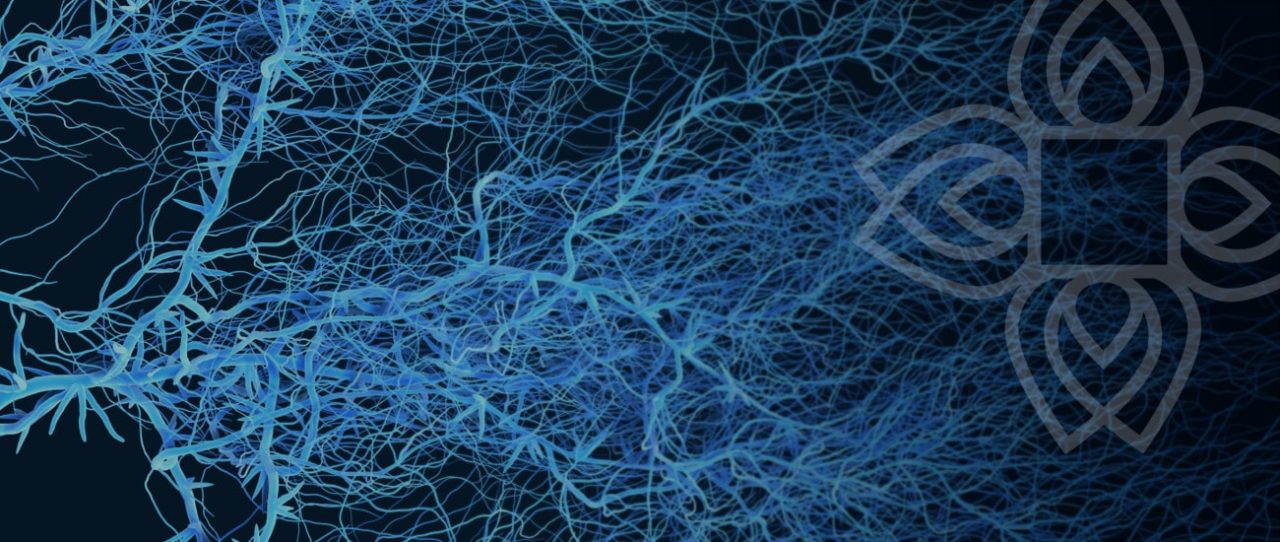
[responsive_vimeo 735857019]
On August 21, 2022 Nalanda Institute hosted an online informational session about our upcoming offerings in the Contemplative Psychotherapy Program (CPP) starting this fall.
It was a wonderful gathering of prospective students, alumni and faculty. Dr. Joe Loizzo (founder and academic director) provided an overview of the Mindfulness, Compassion and Embodiment years and how they fit into our overall offerings.
(more…)by Nalanda Institute
On June 22, 2022, Nalanda Institute for Contemplative Science along with the Wharton Center for Leadership and the Wharton Center for Human Resources hosted a panel discussion called The Great Return to Work: Ensuring Individual and Organizational Wellbeing in the New Normal.
(more…)by Nalanda Institute
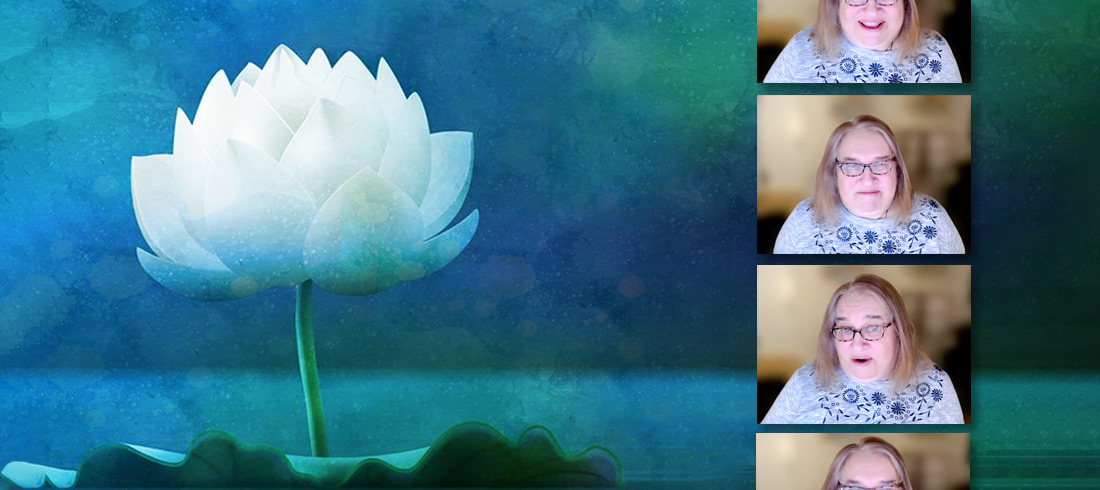
On February 18, 2022 Nalanda Institute was honored to host an online Community Gathering with one of our favorite faculty, Sharon Salzberg, in dialogue with Nalanda Institute’s founder and academic director, Dr. Joe Loizzo.
It was a remarkable evening filled with mindfulness and loving-kindness meditations guided by Sharon Salzberg. Sharon also shared recollections and lessons from her life-long practice and teachings of loving-kindness.
(Video and audio documentation in English, Spanish and Portuguese may be found below)
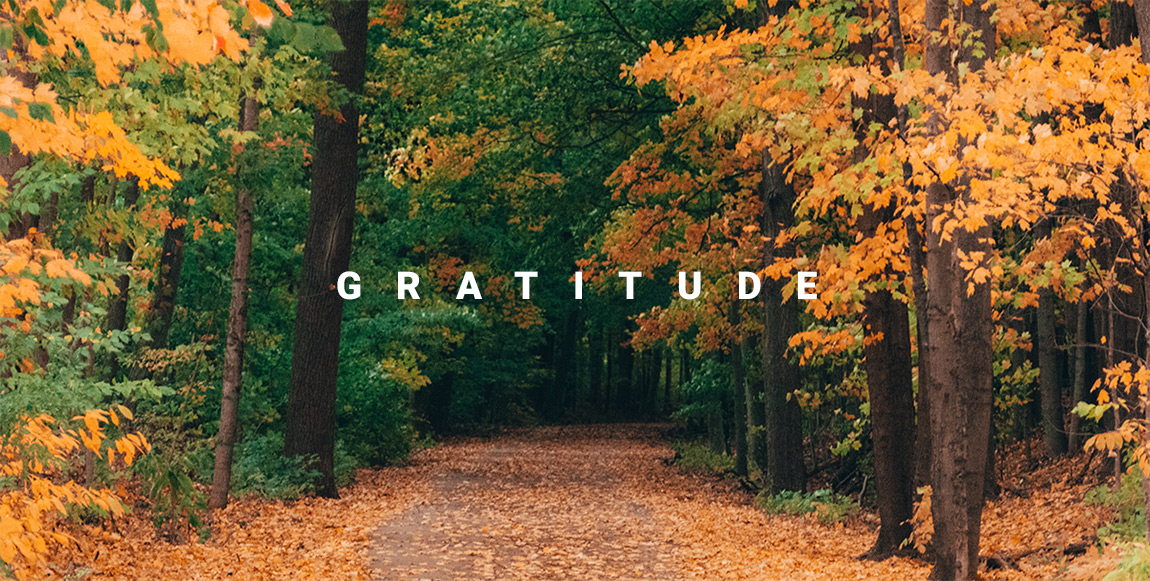
In his Stages of the Altruist’s Path, the 5th century Nalanda master, Asanga, taught that gratitude emerges from acknowledging the kindness and the care we’ve been shown by all of life—the kindness of our parents in giving us life, of our human ancestors in tending and caring for the earth and creating our culture and way of life; and the kindness of nature that’s generative and sustains life. This practice requires accepting all of the difficulties and the harm we see and have experienced in a knowing but not passive way; yet sincerely remembering and connecting with all of the good. This is especially relevant as some prepare to celebrate Thanksgiving in the United States. Although it’s a holiday many recognize as an opportunity to express gratitude, it is also a national day of mourning for Native Americans. We must name and honor the entirety of this history. It is what’s necessary for gratitude to emerge.
by Joe Loizzo
Editor’s note: The following are excerpts from Tarka, Volume 0, “Yoga Philosophy, On the Scholar-Practitioner,” a publication from Embodied Philosophy. The full article is available here as well, courtesy of Embodied Philosophy.
Have you ever wondered why the trend in modern science, scholarship, and practical expertise seems inexorably headed in one direction— towards more and more narrow specialization? I have. Since I was a teen, for some odd reason, this trend has felt so wrong to me that, in hindsight, much of my adult life and work have been dedicated to answering that question and reversing the trend. Here’s some of what I’ve learned and done on my journey thus far to bring the pieces of our humanity back together again. […]
por Joe Loizzo
Publicado originalmente en inglés el 4 de junio de 2020.
Cada año a medida que se acerca el verano me siento a escribir algo celebratorio para las graduaciones de nuestros alumnos del programa de psicoterapia contemplativa y otros programas. Pero después de ver el asesinato desgarrador de George Floyd en vídeo, celebrar se siente imposible.
Mientras el coronavirus devasta los EE. UU., impactando desproporcionadamente a nuestras comunidades negras, mulatas e indígenas y revelando disparidades inaceptables en el ámbito de la salud y desigualdades financieras que exponen el racismo estructural de nuestra nación, vemos reafirmarse a la cultura de la supremacía blanca con los asesinatos de Breonna Taylor, Ahmaud Arbery, Tony McDade, George Floyd y los tuits incendiarios de nuestro presidente.
Pero tal como nuestros líderes negros, mulatos e indígenas nos han enseñado, esta embestida aplastante no es nada nuevo. Observar cómo un policía blanco aparentemente corriente apaga fríamente la vida de George Floyd es ser testigo de la recreación de siglos de opresión a sangre fría contra los negros e indígenas de esta tierra, la repetición de un trauma colectivo tan sádico y psicópata como cualquier genocidio de la historia humana.
By Nalanda Institute Editors
[metaslider id=”5327″]
As the year comes to a close, we’d like to take the time to share with you some highlights of all we’ve accomplished together throughout the year!
Late Winter. We brought in 2019 with a trifecta of inspiring courses and trainings: Yoga, Mind & Spirit Training, Sustainable Happiness Course in Compassion, and Meditation Teacher Training in Compassion.
Spring. In the spring, alongside our Toronto partner X-Hale, we successfully launched our new online Compassion-Based Resilience Training (CBRT) Teacher’s Program, with outreach worldwide; and graduated the NYC and San Francisco cohorts of our Contemplative Psychotherapy Program.
By Helen Park
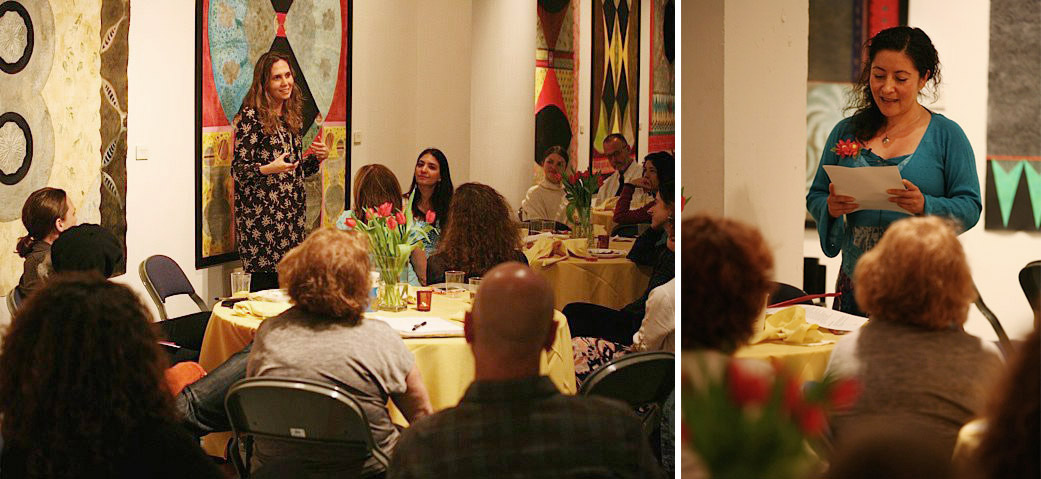
Students from a previous year present their Capstone Projects during a year-end celebratory dinner.
The 2018–19 Compassion Year was an inspired and challenging year full of transitions and growth for us all at the Contemplative Psychotherapy Program in New York City. Over the course of the year, our dedicated and altruistic cohort of practitioners, therapists, coaches, educators, healthcare professionals, and artists engaged with the Mahayana teachings of lojong (“mind training”), Shantideva’s fourfold teachings on compassion, Vajrayana visualization practices, as well as contemporary neuropsychology and research. One of the primary goals of this program is to support our students in a process of embodied learning so that they may take these teachings and implement them into their lives and work, and one of the pathways toward this goal is the Capstone Project.
By Dr. Joe Loizzo
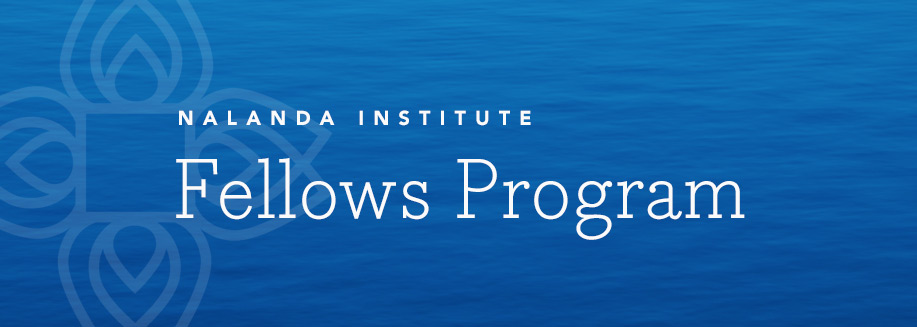
Editor’s update: Our application period has ended. Fellowship recipient(s) will be announced October 2019. Thank you for your interest in our program
These past ten years developing Nalanda Institute with all of you—students, graduates, colleagues and friends—have been years full of discovery, revelations, opportunities, challenges, and unanticipated rewards. In preparing for our tenth annual benefit on June 12th, I’ve had a rare opportunity to take a long exhale with board members, faculty and graduates to look back over all we’ve accomplished together. In that same breath, hindsight showed with fresh perspective who we’ve become as an Institute and community and where our future must take us.
Every day I’m more in awe of how widely and avidly our popular and professional culture is investing in the healing power of contemplative methods of mindfulness, compassion, and embodiment. This welcome development brings not just the strongest possible validation of our mission, programs and community, but also a timely reminder for us to refine our crucial role in an increasingly broad and complex movement.
by Helen Park
On an unseasonably warm November night, current students and alumni of the Contemplative Psychotherapy Program (CPP) in New York City gathered to receive teachings from Lama Rod Owens. Lama Rod is one of the most exciting and inspiring Dharma teachers of our time, having received teaching authorization by the Kagyu school of Tibetan Buddhism after completing a three-year silent retreat, and drawing upon his own very personal life experiences as a Black, queer man raised in the South. He held space with us for close to three hours, inviting us to be in contemplative presence together that was intimate, playful, ‘triggering in a positive way,’ and deeply restorative.
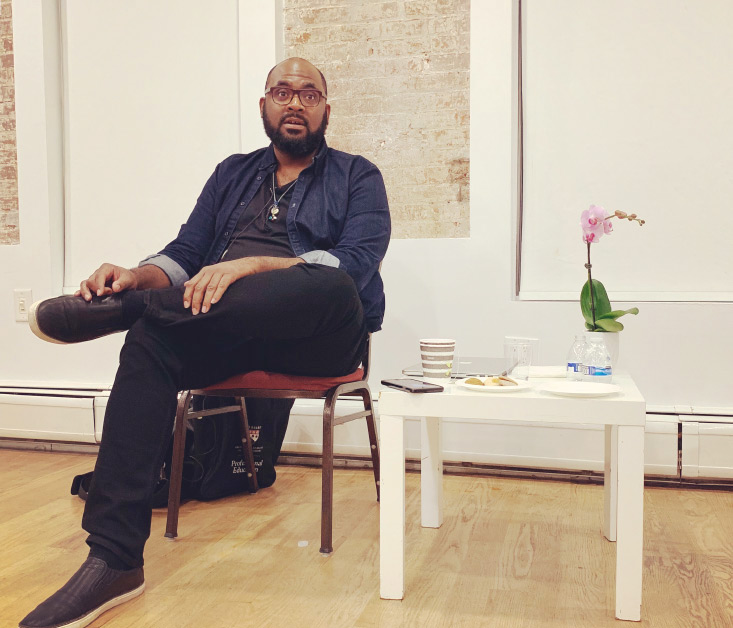
Lama Rod Owens teaching about skillful ways to work with compassion and anger for the Contemplative Psychotherapy Program in New York City.
by Nalanda Institute Editors
[metaslider id=”4579″]
As this year of the Earth Dog comes to an end and we usher in the new year of the Earth Mother Pig, we are happy to look back at just a few of the amazing accomplishments of our community. 2018 has been a pivotal year in which we’ve evolved our teaching methods, deepened our community, and made our programs more widely available.
Extended captions and an elaboration of some of our programs and events in 2018:

